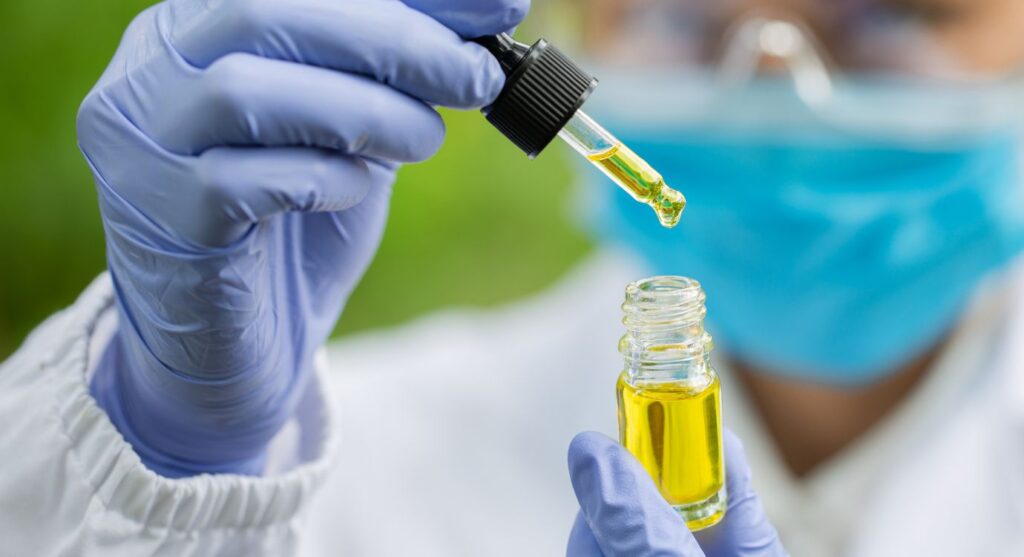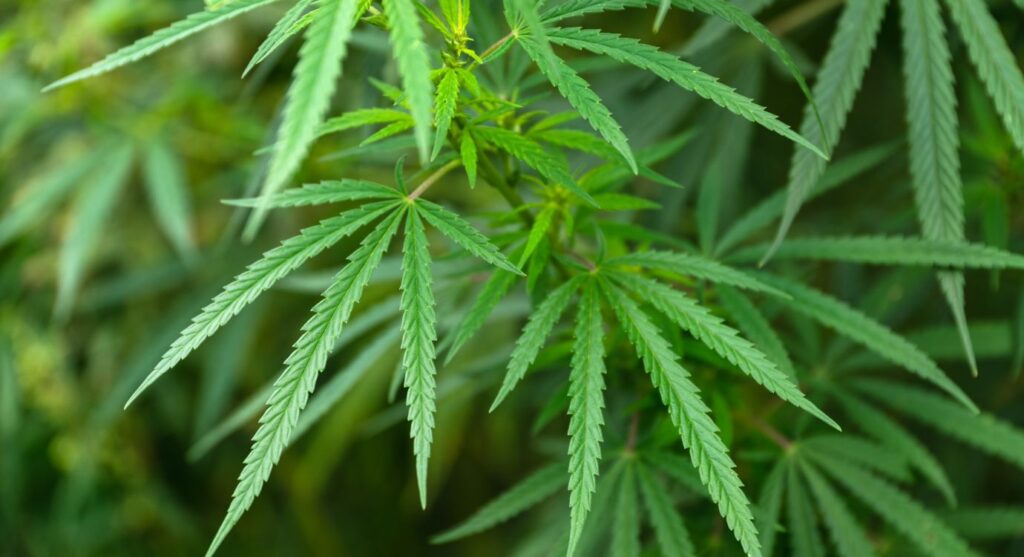Free delivery on all orders over £45
Free delivery on all orders over £45

Medically reviewed by
What is CBC? Did someone just spell CBD wrong? Not quite.
While CBD and THC are the ‘big dogs’ – the names we all know and love – cannabis and hemp plants are packed full of over 150 cannabinoids, all of which can be extracted and may have their own therapeutic benefits.
Truthfully, we’re just beginning to scratch the surface when it comes to our understanding and appreciation of the myriad of components which make up Cannabis Sativa L.
And CBC is one cannabinoid that scientists have recently turned their attention towards – despite it first being discovered in 1975!
So what is CBC oil, and what can we use CBC oil for? Can I buy it in the shops?
In this Evopure guide to CBC and CBC oil, you’ll learn:
Let’s get stuck in.
CBC, or cannabichromene, is a cannabinoid that, like CBD, has no psychoactive or addictive properties.
CBC is non-intoxicating because it doesn’t bind well to the CB1 endocannabinoid receptors in the brain.
Rather, CBC attaches itself to receptors in the body’s endocannabinoid system, a complex network of cells and receptors which impacts our digestion, pain, emotions – and many other important physical processes.
CBC binds to the TRPV1, or vanilloid, receptor and the TRPA1, or ankyrin 1 receptor; both receptors are implicated in our pain response and thought to be important for the maintenance of overall health and wellbeing.
Read more: CBD for pain
It seems that CBC’s interaction with these receptors causes the body to increase the production of natural endocannabinoids.
As such, CBC is one of the ‘big six’ cannabinoids now regularly included in clinical research – it’s been identified as having potential therapeutic benefits that are yet to be identified or fully understood.
As we’re in the early days of CBC-specific research, there are very few CBC-specific products on the market.
To create CBC oil, CBC can be extracted (just like CBD is extracted when creating CBD oil); alongside other complimentary cannabinoids, then infused with terpenes and aromatic compounds.
Read more: What are terpenes?
CBC oil can be used as a tincture, ingested in food or drink, or as a topical product (a cream or ointment on the skin).
Most commonly, though, CBC will be found as a complimentary cannabinoid within full-spectrum CBD or broad-spectrum CBD oil.

To produce CBC oil, manufacturers must either use a hemp strain that contains a high concentration of cannabichromene or use other processes to transform phytocannabinoids into CBC.
CBC extraction processes often rely on ethanol extraction.
With this extraction method, hemp is soaked briefly in ethanol. The plant waxes are dissolved, and a process of evaporation then separates the desirable compounds from everything else.
What’s left is CBC oil.
CBC-rich hemp strains aren’t necessarily grown in large numbers, as producers tend to focus on strains that produce high proportions of CBD.
Due to the interest that THC, CBD and even CBN garnered, CBC has been overlooked for decades.
But while it’s still early days, multiple studies have indicated that CBC offers promising therapeutic potential.
However, it’s important to note that these studies are still undergoing, and none of the effects can be proved with absolute certainty.
Studies has indicated that CBC has strong antibacterial properties and may be effective against several varieties of bacteria and fungi.
A 2008 study found that CBC and other cannabinoids were as effective against MRSA as approved pharmaceuticals, such as Vancomycin.
2010 research points to CBC’s impressive anti-inflammatory credentials – concluding that CBC is more useful as an anti-inflammatory than THC since it doesn’t interact with our CB1 and CB2 receptors.
The study also bolsters the entourage effect theory – so much so that CBC has been called the entourage effect ‘poster child’.
Researchers clearly demonstrated that the best results were observed when CBC was used in combination with THC – producing a far greater anti-inflammatory response than either cannabinoid alone.
Read more: Entourage effect
CBC is thought to encourage neurogenesis, where the brain forms new neurons. This is backed by findings from a 2013 study, which found that CBC improved the function of neural stem progenitor cells (NSPCs): cells which differentiate into numerous other cells, helping brain growth and recovery.
Scientists are particularly interested in this discovery due to the established link between NSPCs and Alzheimer’s.
A study published in the National Library of Medicine found that CBC may have antidepressant-like effects.
Other prominent cannabinoids, such as cannabinol (CBN) and cannabigerol (CBG) were also studied and did not show similar mood-improving effects.
Again, this research demonstrated CBC’s alignment with the entourage effect: best results on mood were observed when CBC was consumed in conjunction with THC and CBD.
Out of way, pricey acne creams. We’ve got a new skin king in town… perhaps! More research is needed, but preliminary studies have indicated that CBC’s anti-inflammatory properties made it a highly effective acne inhibitor.
Read more: CBD oil for skin

CBC products are still in the experimental stage, so we’d advise not to seek out specific CBC oil products until they are more readily available and are sold with a certificate of analysis.
However, CBC is found in products containing a range of cannabinoids.
The best way to take CBC is in a full spectrum or broad spectrum CBD product that contains a wide range of cannabinoids.
Many broad-spectrum and full-spectrum CBD products contain CBC, though in varying quantities.
Read the CBD lab test results of your product to find out the CBC concentration, as well as to ensure that THC levels are legal.
While the compound hasn’t produced any adverse effects on humans, it may interact with prescribed medications. As such, always consult your doctor before starting to take any cannabinoid product.
Read more: Can CBD oil interact with medication?
“What’s the difference between CBC oil and CBD oil? Are they the same?
While their chemical structures are different, CBC and CBD have many similarities.
Let’s take a look at the similarities.
So it makes sense to take both – for example, in a broad spectrum or full spectrum CBD product – rather than choosing one!
10% off on your first order
Complete this one-minute quiz and find the right products for you.
Early results of studies into CBC is certainly promising.
However, more research is needed to learn about the benefits of CBC and the viability of CBC oil as its own product.
For now, the best way to consume CBC is through full-spectrum and broad-spectrum CBD oil.
As always, it is important to consult with your doctor and follow their advice if you’re facing any particular condition. CBD and CBC should only be used to encourage overall well-being rather than to ‘cure’ a particular issue.
Sign up for the Evopure newsletter:
This product is not for use by or sale to persons under the age of 18. It should not be used if you are pregnant or nursing. Consult with a physician before use if you have a serious medical condition or use prescription medications. A Doctor’s advice should be sought before using this and any supplemental dietary product. This product is not intended to diagnose, treat, cure or prevent any disease.
© Evopure Ltd. All rights reserved Terms & Conditions Cookie Policy Sitemap